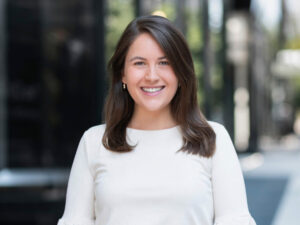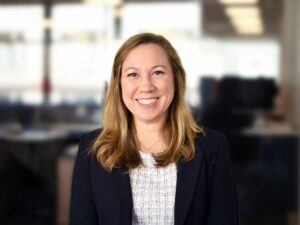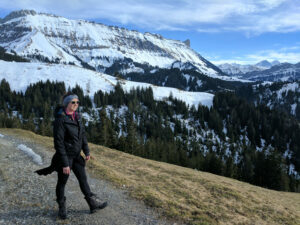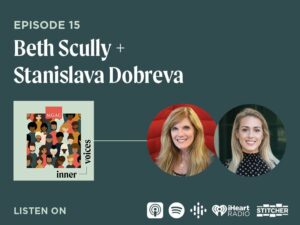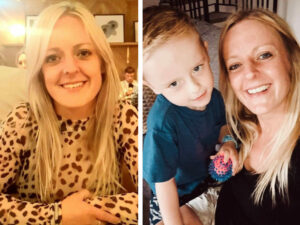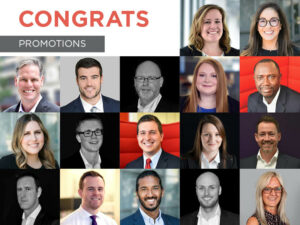MGAC Inner Voices: Episode 14
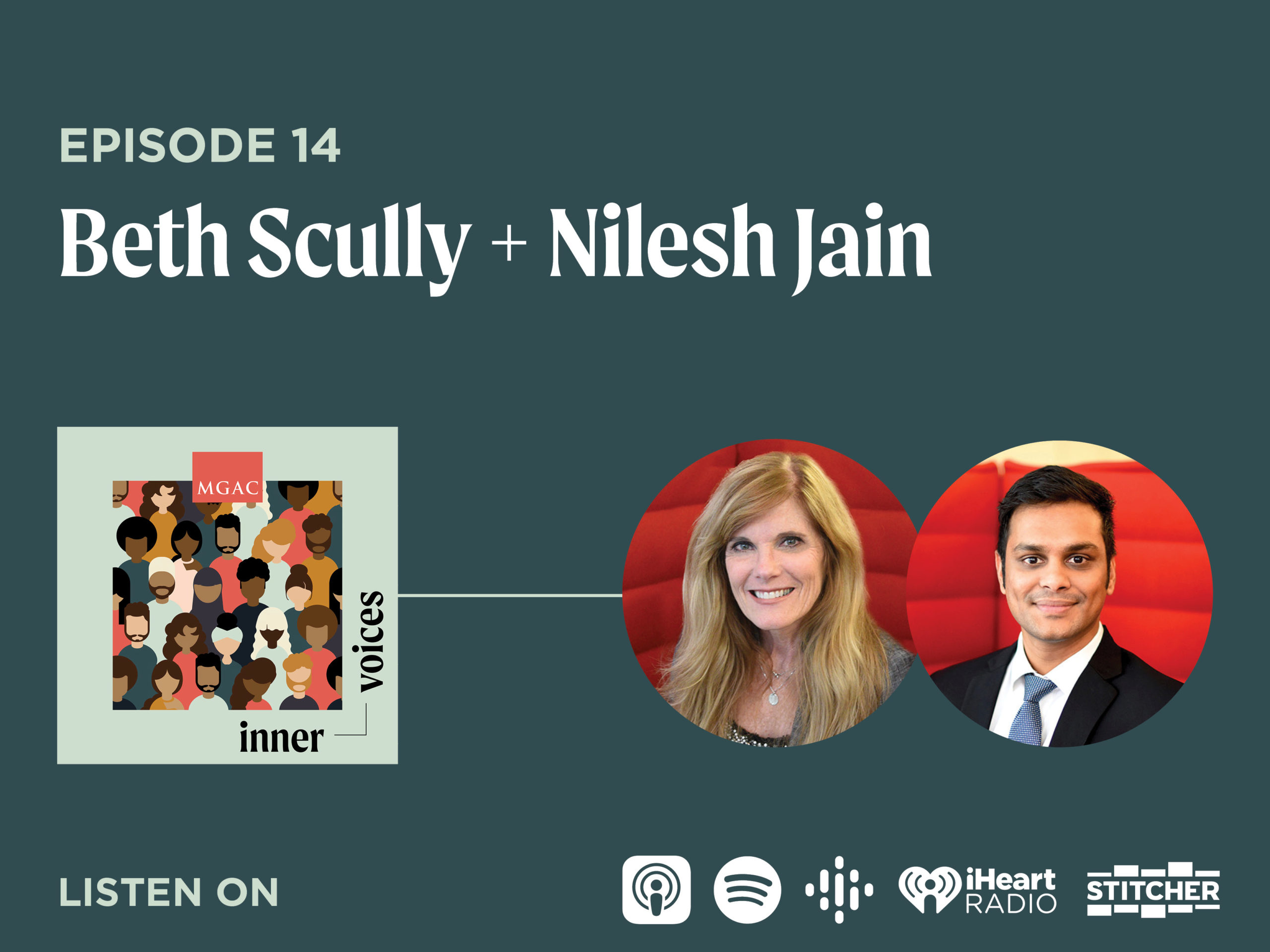
MGAC Inner Voices is an interview format podcast where a diverse mix of employees are interviewed to share their perspective on challenges they have faced in the A/E/C industry as a result of their identity—including race, ethnicity, religion, age, gender, sexuality, ability, etc. By discussing the experiences of our staff, our hope is that their stories will have newfound and powerful resonance with the audience—both to comfort others in similar situations and to encourage those in positions of power to bring about positive, actionable changes to workplace environments for all A/E/C professionals, regardless of their identity.
Beth Scully (MGAC Senior Project Manager, Seattle) talks with Nilesh Jain (MGAC Scheduler, Washington, DC) about the challenges of the U.S. immigration process as an Indian and the importance of building a local family after moving away from home.
View Transcript
Transcript
Beth: Hi, and welcome to "MGAC's Inner Voices," a podcast where we dig into issues of diversity, equity, and inclusion in the architecture, engineering, construction industry, brought to you by MGAC. I'm Beth Scully, residing in Seattle, Washington. I'm a senior project manager. We want to preface the podcast by saying we're not experts in all things, diversity, equity, and inclusion. I can speak to my lived experience and do my best to help our guests share their experiences as well. Our goal is not to be an expert on diversity, but rather we wanna share our stories and figure out how together we can create better outcomes for all of us in the AEC industry and beyond. Today, I have the great pleasure of speaking with Nilesh. And I've had the pleasure of both working with him and chatting in preparation for today's podcast. Nilesh, can you give us a little bit of your background and tell us where you are, your name, your position, all the important details first?
Nilesh: Sure, Beth. It's my pleasure to be on this podcast. My name is Nilesh Jain, and I work as a scheduler at MGAC in our Washington, D.C. office. I am working more than two years with the MGAC. And as a professional background, I've been in construction industry for over five years. I'm a civil engineer and holds a master degree with major in construction engineering.
Beth: Highly qualified. So, to delve right into our podcast, you and I had an earlier conversation together. And after speaking with you, I really had my eyes opened to what you quietly and I would suggest but most bravely have gone through outside of work. Can you let our listeners know a little bit about what your life has been outside of work?
Nilesh: Sure. As an Asian and immigrant, it's been a wonderful journey in the U.S. And I'm living my American dream, to be honest. However, you know, or sometimes there are a bit of difficult situations. I wouldn't say everyone is like that, but there are few people that might not be accepting immigrants as everyone is. So, I have faced some difficult situations outside my workplace. Someone might say, you know, "Go back to your country," and all that kind of stuff. But, you know, it is what it is. But it's been my honor and pleasure to be in the U.S. and work with such great people.
Beth: So, I know that you've experienced various things outside of work. And I wonder, have you ever discussed that kind of treatment with any of your colleagues at work?
Nilesh: To be honest, I don't because working in the U.S., I have learned a lesson. Here, people are mostly professional and they would like to keep their personal life out from the work-life. That's what I learned from my personal experience. So, I don't share my stories with my colleagues, but I do share with some people, some of my friends. And reaction, to be honest, they get angry. But at the end, I have to deal myself with all this situation.
Beth: Yeah. Well, I know we spoke about the genesis of this podcast and the importance we felt of bringing some of these situations forward because it's quite easy, as you're saying, to keep ourselves highly professional and to engage with our colleagues on that level and only that level. But as colleagues learn what you experience in life outside in the world on the streets, I think it will bring us off the bench, if we're on the bench, and stir us to think about how we can be allies, right? So, I appreciate your sharing some of what you experience outside of work. And hopefully, that will stir some of your colleagues to maybe get curious and ask you about your life outside of work, right? But I'd like to pivot the topic a little bit. You and I also spoke, and I know that my eyes were wide opened about your trying to get your Green Card. When you and I spoke, you enlightened me a great deal on something I knew very little about. Can you outline and share with us the process that you're going through, specifically as an Indian?
Nilesh: Sure. So, first of all, I'm on F1 visa, that's a work visa. So, you get work visa on a lottery basis. You do not get based on your qualification. So, you get three attempts to go through the lottery. And if you're lucky, you get picked and you can work in the U.S. So, it's all on luck. Second thing is you just get H1 visa for six years. And once that exhausted, you have to leave country. If you don't wanna leave country, you have to apply for Green Card before your H1 visa gets expired. So that's the process.
So, to get a Green Card to stay in the U.S., the process is pretty tedious. First, you need to get a sponsor who is willing to sponsor your Green Card, and there are very less people out there or employer out there who want to sponsor in construction industry specifically because it's a lot of money and it's a lot of administrative efforts. First of all, it's very tough. Second is Green Card, for an Indian-born citizen, is a very, very tedious and very cumbersome because to get a Green Card for Indian-born citizen, it takes about 20 years. However, on other hand side, if you were born in Nepal or if you are born in UK, you can get a Green Card in three years. So, it all depends on where you were born, and it doesn't depend on your qualification or anything. And, you know, it was not in my hand to get birthed in India. Again, it's on your faith, it's not on your qualification or any hard work.
Beth: Right. It was very illuminating to me that as an Indian-born person, you have to go through this 20-year process.
Nilesh: Yeah. And another part, the toughest part is in this 20 years, the current timeline is 20 years, you have to renew your H1 visa every three years. So, if I decide to go and visit my parents, I have to go to U.S. consulate every time to get my visa stamping if I'm in the renewal process. And another part that I would like to add is when the H1 extension renewal process is in place, you cannot travel between March to September outside the U.S. If you decide to travel, you might be stuck and you don't get the extension. The same situation happened with me, where my mother had an heart attack in March 2020, and I couldn't go to see her at all. And she was in hospital for almost a month. So, I couldn't go because of this all visa process, and you cannot travel if the visa is in process.
Beth: That is gut-wrenching to hear, that, you know, your heart longs to be with your mother, but because of this extended and very difficult process, you are not able to travel and to be with your family at a time when most of us would, that's the very place we wanna be, right?
Nilesh: Yeah. And Indian culture is a little different. People who might have visited India have seen it. But Indian culture is more family-oriented. We have like 50 cousins, whatnot, you know, so we are very family-oriented. So, it's more disturbing when this such event happens and you cannot visit your family member.
Beth: Of course, of course. And how do you feel that that whole process continues to affect you personally? I mean, your courage is amazing to me, and the fact that you get up every day and go to work and do such an amazing job. And I've seen your work and I've worked with you, so I know how brilliant you are. But how does this affect you? And where do you summon the courage?
Nilesh: To be honest, working in the U.S., it's like a dream. You think about your goals, and there are ways to achieve those goals. And people are very kind, very supportive here, and very motivating. So that gives me courage to forget about all the negative things and go for the positive things. Talking about how it affects my personal life, renewing my visa every three years is very tough. For example, down the line five years, if I decide to have family, kids, and they're to go to preschool, if I get, you know, some problem in my visa process, I have to go back to my country. And this has happened to many of my friends. Their kids were about to go to school, but because of this visa process, they have to go back to India or their country. And again, because of this uncertainty, even if I decide to buy a house or any property, I cannot buy because I don't know if I'm gonna stay in this country for a long time. And you get certainty once you get Green Card. But to get a Green Card, it takes 20 years, and I'll be 50 by that time.
Beth: Well, and I think what's important to call out is that, at any point along the way, as you're building your career through no fault of your own, the carpet can get yanked from under you.
Nilesh: That's correct.
Beth: Yeah. I wanna just sit with that for a minute and let people absorb the kind of courage that takes to every day get up and give your best effort and do your best work knowing that because of this visa process, it could be yanked out from under you at any point. And I just wanna express to you during our podcast here, my great admiration for you for...
Nilesh: It's my pleasure. And I'm talking on behalf of a lot of people.
Beth: I know that. And thank you for doing that. And some of the other things that we talked about were all the positive things we could showcase.
Nilesh: Definitely.
Beth: And I'd love for you to talk about your work in the AEC industry and how it's been strengthened and showcase some of those finer points here.
Nilesh: Sure. You know, I would like to add something. You know, America is supposed to be place of freedom, it's supposed to be place of hope. It's supposed to represent land of free and home of brave. And I have lived my American dream here. I have perceived my lot of goals here. It has changed me positively in my professional life, in my personal life. And people here are so great. They are motivating, they accept new ideas, they hear you, they respect you. And it's my privilege to work in the U.S. with such a great people. Every single people matter to me, and I'm grateful to them. Talking about my career how it has strengthened, well, I came to the U.S. to learn skills that I couldn't acquire in my country. And I have learned a lot, you know better. I'm the one who integrated Power BI software in our project control crew. And my manager was completely welcoming to that idea. And he encouraged me. And today, we are very successful with that. We got multiple project because of that integration. I'm absolutely grateful to be working in MGAC and with such a great people.
Beth: Yes. And we are the recipient of your great work. I mean, you know, we've got a client that just looks forward to those reports. And, you know, as you and I were working on one of the schedules, you showed me what else, the power of what you've built for other clients as well. I am sure that we are the benefactors more than you benefit. But I wonder if we can sort of talk about why diversity, equity, and inclusion is important in a workplace?
Nilesh: Yeah, definitely I would like to touch base on that. You know, diversity, it increased a lot of great variety of solution to a problem. Everyone is coming from a different culture, so everyone has different perspective. So, we have a different solution for a single problem. So, this brings a lot of advantage to a company. With diversity and inclusion, everyone gets more tolerant, everyone gets more creative and respectful, and that's a great point. I would also like to add, diversity has boosted American industry, right from Albert Einstein to the current Elon Musk. It's all win-win situation. So, I definitely encourage diversity and inclusion in all company. And especially, I would like to mention in at MGAC, cost and risk is the most diverse group. And I'm absolutely honored to be the part of it.
Beth: So I wonder how does your unique identity make you a strong asset to the team, and how does it inform who you are, professionally?
Nilesh: Coming from Asia, I bring different ideas to my team. I have different perspective. I have worked in India for two years, so I have different perspective. So, I bring those perspective. I keep them in front of my colleagues, and we discuss on them, and we implement on it if it's really good for our team. I would just sum up and say that diversity and inclusion is definitely good or healthy for an organization, and it should be promoted.
Beth: Well said.
Nilesh: And I am absolutely thank you for you guys to initiate this diversity and inclusion at MAGC. It has given everyone's different perspective, and everyone is hearing stories that are not heard. And I'm absolutely honored and humbled for everything you guys have done.
Beth: Trust me when I tell you we are the ones who are so grateful for you, for your courage to come forward and to share your story and to speak your truth. It's profound and we learn together and we grow together. So thank you. Appreciate that. So, if you...not that you're not young because you are, if you're giving advice to a very young person, think of yourself when you were very first starting, what advice would you give them to pursue a career in the AEC industry, and might be worried about facing discrimination?
Nilesh: Are you talking about giving an advice to an immigrant or in general?
Beth: To an immigrant.
Nilesh: Yeah. I would just say, you know, to an immigrant that be what you are, do not fear anything. If you think you are correct, just speak up and don't be afraid of discrimination, you know, face it because it's the part of world. It won't eradicate in a day, it would eradicate eventually, and you would be responsible to eradicate that. So, don't fear discrimination, just fight it.
Beth: Awesome. Awesome. And what does a more diverse AEC industry look like to you?
Nilesh: You know, IT is the third-highest GDP contributor to the U.S. and it's the most diverse industry. So, if you get most diversity in our industry, we are gonna be more successful.
Beth: Yeah. So, you just see it broadening the capacity to be more...
Nilesh: Diversity.
Beth: Yeah, the diversity. So, for coworkers, for example, that are listening to this podcast and saying, "Oh gosh, I never knew what he experienced outside of work. I never knew what his process was for getting his visa, and ultimately Green Card," how do people best become allies?
Nilesh: You know, most of the immigrants here don't have families. And talking about visa process, it's just a government thing. You know, it's something that's not easy controlled by an individual like us. But all we can do and hope is support us because immigrants matters, I think. And, you know, coming far 1, 000 miles away or 10,000 miles away, we just expect, you know, everyone be kind and be respectful, and we are just like you.
Beth: Be just like us, and what I'm hearing is that involve you in our families. Family as you said is...
Nilesh: Exactly. That's what I was trying to get is we don't have families, so we expect a family here.
Beth: Yeah. And so we can all open our eyes and include you in all of our families. I would be delighted if you came to Seattle to include you in my family. Count that a genuine honor. So, is there anything else you would love for our listeners to hear, to ponder?
Nilesh: I would just like to add that it is my absolute pleasure. And America has given me a lot. People are extremely kind, supportive. Right from my master's to MGAC, I have been fortunate that I didn't face a lot of discrimination. And I was supported by many people, that is why I'm successful. I wouldn't say successful, but...
Beth: It's okay.
Nilesh: You know, at least trying to be on that path. And I'm thankful to everyone who supported me in this journey.
Beth: Well, again, we wanna express our gratitude to you for coming forward to participate in our podcast. And hopefully, what we've done by sharing your story is encourage somebody, encourage somebody who needed to hear about your journey and encourage people to become better allies for folks.
Nilesh: Definitely.
Beth: Thank you so much.
Nilesh: Thank you, Beth.
Beth: That concludes this podcast of "MGAC Inner Voices." Thank you so much for joining us. And please, check back next month for another episode of Inner Voices. Until then, take care.

